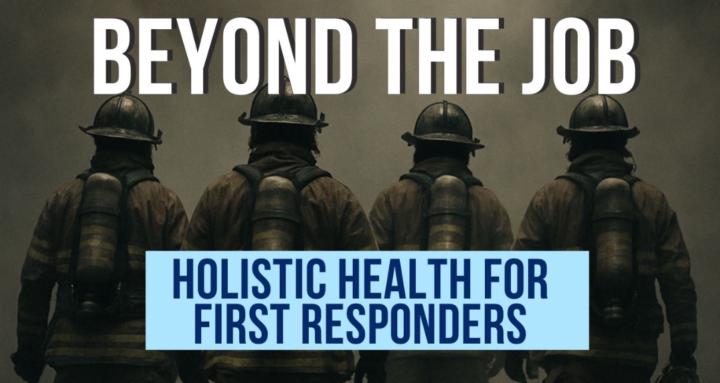Sep '24 • Sleep
🚨 First Responders: The Silent Power of Sleep on Your Metabolism 💤
We often push ourselves to the limit, always on call, ready to serve. But in our line of work, it’s easy to overlook one critical factor that could be holding us back: sleep.
Did you know that sleep is the cornerstone of a healthy metabolism? 🧠💥 Here’s how the amount of sleep you get directly impacts your body:
4 Hours of Sleep or Less: Your body’s ability to process glucose drops by as much as 40%, leading to insulin resistance, increased cravings for high-calorie foods, and a greater risk of weight gain and metabolic disorders.
6 Hours of Sleep: While better than 4, you’re still at risk for impaired insulin sensitivity and increased levels of the stress hormone cortisol, which promotes fat storage—especially around the belly. Your hunger hormones are also out of balance, making it harder to stick to a healthy diet.
7-8 Hours of Sleep: This is the sweet spot. Your body regulates blood sugar levels effectively, balances hunger hormones, and optimizes fat-burning processes. You’ll find it easier to build muscle, lose fat, and maintain a healthy metabolism.
For those of us working overnight shifts, getting quality sleep can be a challenge, but it’s not impossible. Here are specific tips to help improve your sleep:
Create a Dark and Quiet Environment: Use blackout curtains and a white noise machine to make your sleeping environment as dark and quiet as possible. This will help signal to your body that it’s time to sleep, even during daylight hours.
Stick to a Routine: Go to bed and wake up at the same time every day, including on days off. Consistency helps regulate your circadian rhythm, making it easier to fall asleep and wake up.
For 12-hour overnight shifts: Aim to get at least 6 hours of sleep directly after your shift, followed by a 1-2 hour nap before your next shift.
Limit Stimulants: Avoid caffeine, nicotine, and heavy meals at least 4-6 hours before you plan to sleep. If you need a snack, choose something light and low in sugar.
Wind Down Before Sleep: Dedicate at least 30 minutes before bed to winding down. Engage in calming activities like reading, stretching, or deep breathing exercises to help your body relax.
Use Light to Your Advantage: During your waking hours, expose yourself to bright light, especially natural sunlight if possible. This helps your body understand when it’s time to be alert. Conversely, limit screen time and exposure to bright lights in the hour before bed.
Remember, sleep isn’t just a luxury—it’s a necessity. By prioritizing rest, we not only protect our health but also enhance our ability to serve others. Let’s commit to giving our bodies the rest they need to perform at their best.
Stay safe, stay strong, and sleep well. 💤
1
4 comments
Powered by

